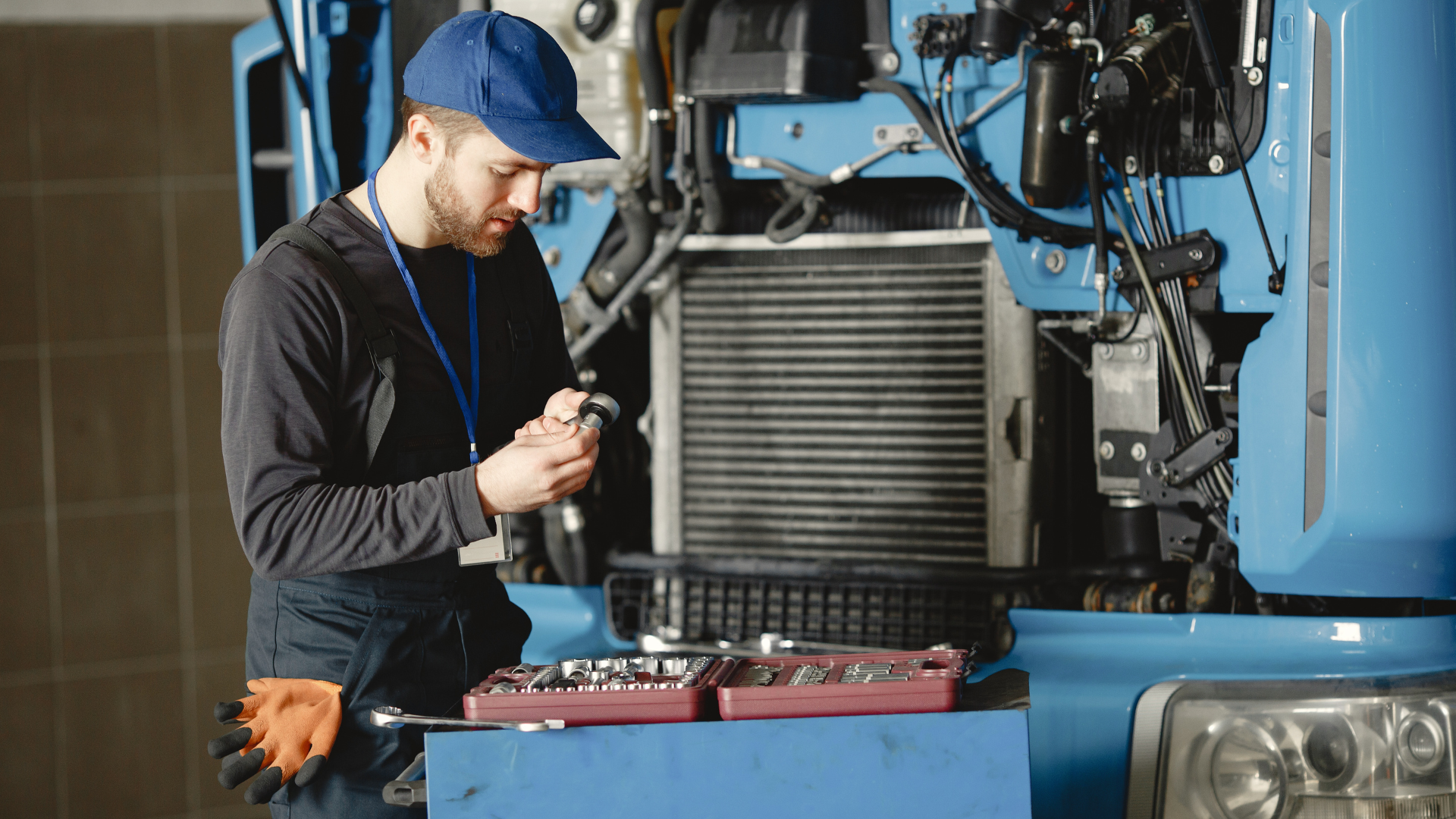
Encountering electrical issues in trucks can be a significant challenge for owners, drivers, fleet managers, and automotive enthusiasts alike. These problems can range from minor inconveniences to serious faults that affect the vehicle’s performance and safety. Understanding and troubleshooting truck electrical problems is crucial for maintaining the reliability and efficiency of your fleet. This document aims to provide insightful truck maintenance tips and electrical issue solutions for trucks, offering expert truck repair advice to help you keep your vehicles in optimal condition. Join us as we delve into the intricacies of truck electrical systems and explore effective strategies to address these common concerns.
Common Truck Electrical Issues
Truck electrical issues can manifest in several ways, impacting both performance and safety. One frequent problem is a malfunctioning battery, often due to corrosion or wear over time. It’s crucial to ensure the battery terminals are clean and securely connected. Another common issue is faulty wiring, which can lead to inconsistent power flow and cause components to fail or operate erratically.
Regular inspections of the wiring for signs of wear or damage can prevent such problems. Alternator failure is another concern, affecting the vehicle’s ability to recharge the battery and power electrical systems. Recognizing early signs like dim headlights can help avert more severe malfunctions.
Additionally, fuse problems can lead to circuit failures, affecting lights and other essential systems. Carrying spare fuses and knowing how to replace them is a practical truck maintenance tip for avoiding downtime. Understanding these issues helps in troubleshooting truck electrical problems effectively.
When your truck’s in distress on the highway, don’t panic – call Fast Service for immediate, expert assistance!
Troubleshooting Truck Electrical Problems
Effective troubleshooting of truck electrical problems begins with a systematic approach. Start by checking the battery, as it’s the heart of the truck’s electrical system. Ensure it’s fully charged and that the connections are clean and tight. If the battery is fine, inspect the alternator, which could be failing if the battery is frequently low. Use a multimeter to test it; a healthy alternator typically shows a voltage between 13.5 to 14.5 volts when the truck is running. Next, examine the wiring for any visible damage or loose connections.
Pay particular attention to areas where wires bend or pass through metal, as these spots are prone to wear. If electrical components aren’t functioning, check the fuses and replace any that are blown. Understanding and addressing these common points of failure can help ensure your truck remains reliable. Employing these steps will provide effective electrical issue solutions for trucks.
We recommend you to see this article: How Often Should You Replace Your Car Tires?
Essential Truck Maintenance Tips
To keep your truck’s electrical systems in optimal condition and extend the vehicle’s lifespan, adhere to these essential maintenance checks:
-
Schedule Regular Inspections: Set up routine checks for the battery, alternator, and wiring to detect issues early.
-
Clean Battery Terminals: Regularly clean the terminals to prevent corrosion and maintain strong electrical connections.
-
Verify Lights and Indicators: Ensure all lights and indicators are functioning correctly, as they’re critical for road safety.
-
Check and Replace Fuses: Periodically inspect and replace worn-out fuses to avert unexpected electrical failures.
-
Update Truck Software: Keep your truck’s software updated to benefit from performance and reliability improvements released by manufacturers.
By incorporating these maintenance strategies, you can improve your fleet’s operational efficiency, minimizing downtime and reducing repair costs.
Experience the peace of mind that comes with knowing fast service is just a phone call away. Chat with us here.
Electrical Issue Solutions for Trucks
Addressing truck electrical issues effectively requires a combination of preventive measures and timely interventions. For battery-related problems, ensure regular maintenance and replacement of old batteries to prevent unexpected failures. Using dielectric grease on battery terminals can also help reduce corrosion. When dealing with wiring issues, investing in high-quality, durable cables can mitigate wear and tear. It’s also important to secure wiring harnesses to prevent vibrations and friction from causing damage.
For alternator problems, routine testing can catch early signs of failure, allowing for timely repairs or replacements. Additionally, maintaining an organized and labeled fuse box makes it easier to identify and replace blown fuses quickly. Implementing these solutions not only enhances the reliability of your truck’s electrical system but also extends its lifespan. By proactively applying these strategies, you can minimize disruptions and ensure your truck remains efficient and safe on the road.
We recommend you to see this article: How to Make the Truck Cab More Comfortable?
Expert Truck Repair Advice
When dealing with truck electrical issues, seeking expert truck repair advice can make a significant difference in maintaining vehicle performance. One key piece of advice is to establish a relationship with a reliable mechanic or repair shop specializing in trucks. Experienced technicians can provide insights into recurring problems and recommend specific maintenance routines. They are also well-equipped to handle complex diagnostic procedures that might be challenging for a layperson.
Another essential tip is to invest in quality diagnostic tools. These tools can help you identify issues swiftly and accurately, reducing dependency on external help for minor problems. Also, always use original or high-quality aftermarket parts for repairs to ensure longevity and compatibility with your truck’s systems.
Lastly, keeping detailed records of all repairs and maintenance can help track patterns and make informed decisions about future repairs. Applying this expert advice will not only solve current issues but also prevent future electrical system failures.
For reliable roadside help, dial fast service anytime!
To get more information about us, follow us on Facebook and Instagram. Or call us right now for a road service on: repairtrucktrailer.com




